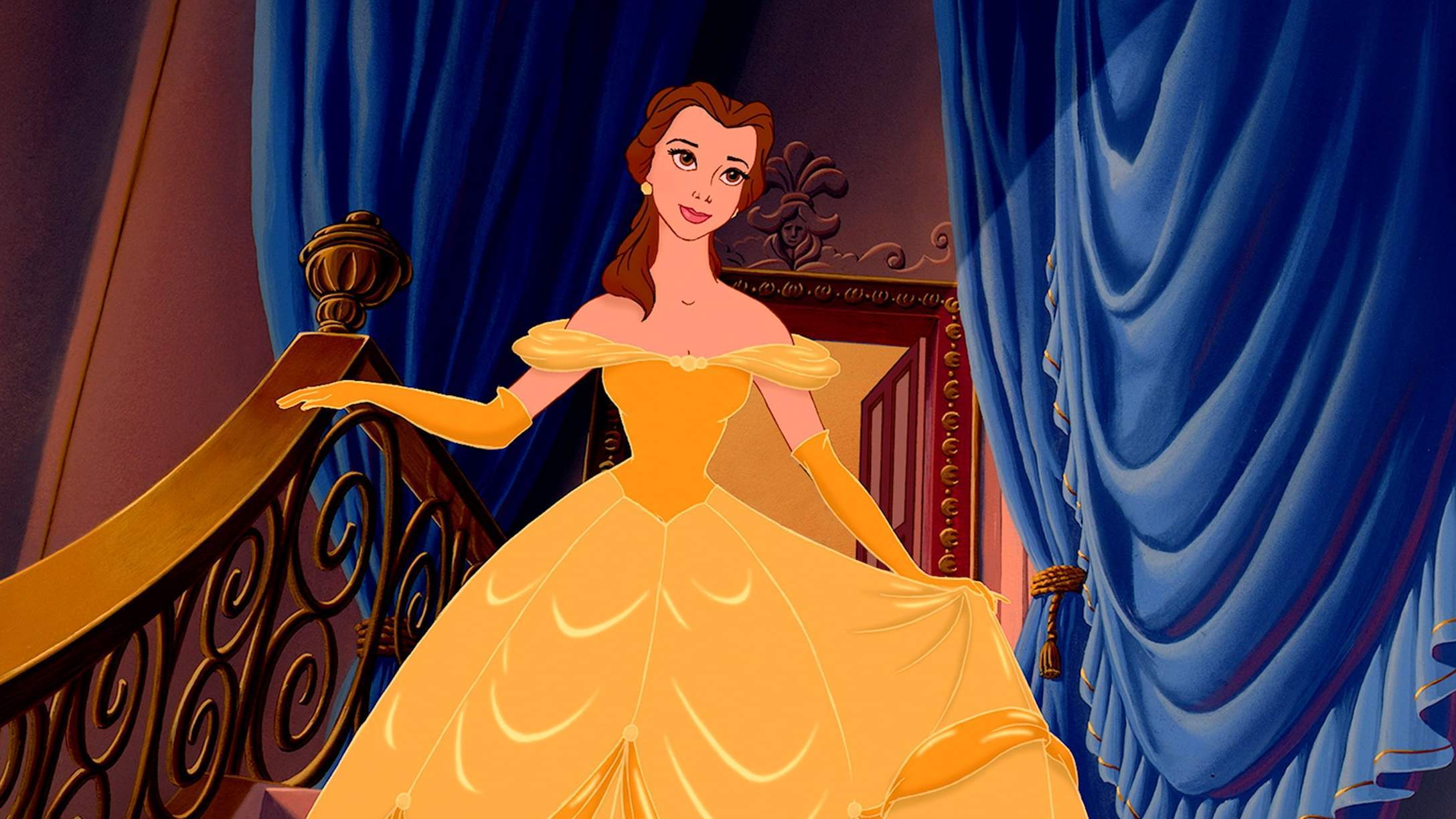There's a natural human curiosity that pulls us toward stories of justice, especially when someone appears to have acted in a way that causes harm to others. We often expect to see a clear path of accountability, perhaps even prison time, when a person has misled the public. This inherent desire for fairness often makes us wonder about the consequences faced by individuals whose actions have been widely reported and debated.
One such person who has sparked a lot of conversation and, is that, a great deal of public questioning is Belle Gibson. Her story, which involves serious claims about health and wellness, captured a lot of attention, and many people, perhaps like you, have been left with a lingering question: did Belle Gibson ever go to jail for what she did? It's a common thought, especially when a story involves someone building a public profile on what turned out to be untruths.
The truth about the Belle Gibson jail sentence, or the lack thereof, might actually surprise many who followed her story. Despite the widespread impact of her actions and the strong feelings they stirred, the real-life Belle Gibson did not, in fact, spend any time in prison. This fact, in a way, often leads to more questions than answers for those trying to make sense of the situation.
- Who is Belle Gibson?
- The Core of the Deception - What was the Belle Gibson Scandal?
- Why No Belle Gibson Jail Sentence?
- The Financial Repercussions - Did Belle Gibson Pay Her Dues?
Who is Belle Gibson?
Many people first heard about Belle Gibson because of her presence online, where she built a following as someone who shared stories about health and well-being. She presented herself as a figure who had overcome serious health challenges, which, in some respects, made her seem like a source of inspiration for many seeking similar paths. Her public image was tied to a narrative of personal struggle and eventual triumph through particular lifestyle choices, which she then promoted to a wider audience. This public story, as a matter of fact, became the foundation of her online presence and, eventually, a business endeavor.
The story she put out there was quite specific: she claimed to have a serious illness, a brain tumor, and then stated she was able to manage it, or even get rid of it, through natural methods, without relying on conventional medical treatments. This account, as you know, resonated with a lot of people who might have been looking for alternative ways to approach their own health concerns. She also said she was sharing proceeds from her work with various charities, which added another layer of appeal to her public persona. This combination of personal health claims and charitable giving helped her gather a significant number of followers and supporters, creating a platform that grew quite large, seemingly overnight.
- Children Of Julianne Moore
- Billie Eilish Nude Photos
- Iran Nominal Gdp 2024 Imf
- Bradley Golfer Wife
- How Much Money Does Tjr Have
Early Life and Public Persona
While the focus of her public life was very much on her health claims and wellness advice, details about Belle Gibson's early life are not widely known or discussed in the public accounts of her story. Her public identity really took shape around her claims of illness and her supposed recovery. She became known as a wellness influencer, someone who offered advice and products based on her personal experience. This public image was, in a way, her main offering to the world, drawing people in with a narrative of hope and self-healing. She created a mobile application and a cookbook, both of which were quite popular, further cementing her status in the wellness community. The success of these ventures was, to be honest, directly linked to the personal story she shared about her health.
Here's a brief look at some general details known about Belle Gibson from public records:
| Detail | Information |
|---|---|
| Name | Belle Gibson |
| Nationality | Australian |
| Known Profession | Wellness Influencer, Author of a cookbook and developer of a mobile application. |
| Key Claim | Faked a terminal cancer diagnosis and claimed to have cured it naturally. |
The Core of the Deception - What was the Belle Gibson Scandal?
The heart of the situation with Belle Gibson was a series of claims she made that turned out not to be true. She had, as you might recall, told a story about having a brain tumor that was supposed to be terminal, meaning it would lead to her death. Then, she said she had managed to heal herself using only natural remedies and a specific diet, completely avoiding traditional medical care. This narrative was not just a personal story; it was the foundation of her business, including a popular mobile application and a cookbook. People bought into her story, believing her to be a genuine example of someone who had beaten a very serious illness through alternative means. The issue, however, was that these claims were, in fact, not based in reality, which led to a very public questioning of her entire persona.
The scandal really began to unfold when questions started to arise about the truthfulness of her health story. Journalists and others began to look into her claims, and what they found was a different picture from the one she had painted. It became clear that she had never actually been diagnosed with the terminal cancer she spoke about, nor had she undergone the treatments she claimed to have avoided. This revelation was a huge shock to her followers and the wider public, as it meant the very basis of her wellness empire was built on a deception. The impact of this discovery was significant, as it shattered the trust many people had placed in her and her advice, especially those who were looking for hope in their own health struggles. It was, in a way, a betrayal of that trust.
Beyond the Belle Gibson Jail Sentence - The Legal Fallout
Even though the question of a Belle Gibson jail sentence was on many people's minds, her legal issues actually centered on consumer protection laws rather than criminal charges that would put someone in prison. She was found to have acted in a way that was misleading and deceptive to consumers. This means she made claims that were not true, leading people to believe things about her health and her products that were simply not accurate. The legal system in Australia, where this all took place, has rules to protect people from businesses or individuals who make false statements to sell things or gain a following. So, while she broke the law, it was a specific type of law designed to protect consumers, not a law that would typically lead to a criminal conviction resulting in time behind bars. She did appear in court, which is a key part of the process for these kinds of legal issues.
The legal actions taken against her were about proving that she had engaged in "unconscionable conduct," a term used when someone acts in a way that is so unfair or unreasonable it goes against good conscience. This finding meant she had taken advantage of people's vulnerabilities or trust. The court ordered her to pay a significant amount of money, a fine of $410,000, as a result of her actions. This financial penalty was meant to address the harm caused by her misleading conduct. It was a very serious outcome, financially speaking, but it was not the same as being found guilty of a crime that would send someone to prison. The legal process, in this instance, focused on rectifying the consumer harm rather than imposing a criminal sentence, which is why the question of a Belle Gibson jail sentence remained unanswered in the way many expected.
Why No Belle Gibson Jail Sentence?
A lot of people were, quite frankly, baffled that Belle Gibson never ended up in prison after her elaborate deception came to light. The reason she did not face a Belle Gibson jail sentence comes down to the specific nature of the laws she was found to have broken. The legal proceedings against her were not about criminal fraud, which is the type of charge that typically leads to a prison term. Instead, the case focused on breaches of consumer laws. These laws are put in place to ensure that businesses and individuals act honestly when they are selling products or services, or when they are making claims that might influence people to buy something. When you break consumer laws, the penalties are usually fines or other civil orders, rather than being locked up.
So, the core of it is that while her actions were certainly wrong and caused a lot of upset, they fell under a different part of the legal system. Criminal charges, which would involve things like theft, assault, or serious fraud, are handled differently and carry different kinds of punishments, including imprisonment. Her conduct, though deceitful, was classified as misleading and deceptive in a commercial sense. This distinction is really important when trying to understand why she wasn't given a prison sentence. It's not that her actions were seen as minor, but rather that they fit into a legal category that doesn't typically result in someone going to jail. The court's job was to address the consumer harm and ensure she was held accountable through financial penalties, which, you know, is a different kind of justice.
Consumer Law Versus Criminal Charges
To understand why there was no Belle Gibson jail sentence, it's useful to look at the difference between consumer law and criminal charges. Consumer law is all about making sure that businesses and people who sell things are fair and truthful in their dealings with customers. If you make false claims about a product, or if you mislead people into buying something, you can be found to have breached these laws. The consequences for this usually involve paying fines, giving refunds, or being told by a court to stop doing what you were doing. It's about correcting a wrong in the marketplace and protecting the public's money and trust. For instance, if a company says its product can do something it can't, that's a consumer law issue.
Criminal charges, on the other hand, are about actions that are considered harmful to society as a whole, things that break the peace or cause serious damage to individuals or their property. These include acts like stealing, hurting someone, or committing serious types of fraud where there's a clear intent to cheat someone out of a lot of money through dishonest means. When someone is found guilty of a criminal offense, the penalties can be very severe, including imprisonment. The legal standard for proving a criminal offense is also much higher; the prosecution has to show guilt "beyond a reasonable doubt." Belle Gibson's actions, while definitely dishonest, were judged within the framework of consumer protection, which meant the focus was on the misleading claims she made to her audience rather than a direct criminal act that would warrant a Belle Gibson jail sentence.
The Financial Repercussions - Did Belle Gibson Pay Her Dues?
After the court ordered Belle Gibson to pay a substantial fine of $410,000 for her misleading conduct, the next question for many was whether she actually paid that money. As of April 2019, reports indicated that Gibson had not paid the fine. This failure to pay prompted the authorities to consider further action against her, which could have included charging her with contempt of court. Contempt of court is a serious matter, as it means someone has disobeyed a direct order from a judge. This could, in fact, carry its own penalties, including the possibility of imprisonment, though it would be for disrespecting the court's authority rather than for the original deception itself. It was, arguably, a very real risk she faced if she continued to not comply with the court's decision.
The situation escalated when, according to reports from The Mirror US, she risked imprisonment if she failed to appear in court in May. This shows that while she wasn't jailed for the initial fraud, the consequences of not following court orders could have led to a loss of freedom. However, the available information confirms that Belle Gibson did appear in court. The Federal Court of Australia had ordered her to pay the $410,000 in relation to her "unconscionable conduct." This financial penalty was the main way the legal system sought to hold her accountable for her actions, aiming to address the harm she caused to consumers. So, while there was no Belle Gibson jail sentence for the original issue, the failure to pay the fine brought her closer to that possibility, at least for a time.
The Aftermath of the Belle Gibson Jail Sentence Question
The question of a Belle Gibson jail sentence continued to hover over her story, especially as the issue of the unpaid fine became public. In a letter from 2017, which was later made public by the Federal Court, Gibson stated that she was $170,000 in debt and only had about $5,000 to her name. This painted a picture of someone who claimed to be in a difficult financial situation, which might have been why the fine went unpaid. The authorities, however, are typically quite serious about ensuring court orders are followed. So, to collect the money owed, Belle Gibson's home was, as a matter of fact, raided by police, or more accurately, by Victorian Sheriff's officers. This action was taken to try and recover funds or assets to help pay down the imposed fine.
In May 2021, the Australian Broadcasting Corporation reported that Gibson's Northcote home in Melbourne was indeed raided by these officers. This action highlights the legal system's efforts to enforce the financial penalty, even if it meant taking steps to seize assets. The Netflix series "Apple Cider Vinegar" also touches upon these events, showing that Belle, played by an actor, did not spend any time in jail. The show, which is a dramatized version of the true story, depicts the legal fallout without showing her in prison. The series, in a way, confirms the public understanding that while she faced serious legal consequences and financial penalties, a Belle Gibson jail sentence was not among them. The story of Belle Gibson, as told through the series and public reports, is one of significant deception, legal battles over consumer protection, and financial repercussions, but not of imprisonment for the initial misleading claims.
The Belle Gibson scandal, despite the absence of a Belle Gibson jail sentence, left a lasting impact on the wellness industry, public trust, and how consumer protection laws are viewed. Her story became a very clear example of the dangers of unchecked claims in the health space and the importance of verifying information, especially when it comes to personal well-being. It also brought into sharp focus the difference between various types of legal offenses and their respective penalties, helping people understand why certain actions lead to fines while others lead to prison time. The entire episode served as a significant reminder for consumers to approach health claims with a healthy dose of skepticism.
Related Resources:
Detail Author:
- Name : Faye Hilpert
- Username : haley.mac
- Email : lera.lueilwitz@mccullough.info
- Birthdate : 2002-05-11
- Address : 8455 Timothy Street Suite 088 North Phyllisside, MD 76982
- Phone : 458.833.0097
- Company : Schamberger LLC
- Job : Transportation Equipment Maintenance
- Bio : Et consectetur animi ipsam non dignissimos. Qui a ratione blanditiis quas. Magnam ut tenetur nam molestiae. Earum quos rerum quisquam.
Socials
instagram:
- url : https://instagram.com/milfordhowe
- username : milfordhowe
- bio : Ut enim quod aspernatur nisi minus. Labore sequi sint et saepe et quo aut aut.
- followers : 371
- following : 2480
twitter:
- url : https://twitter.com/howem
- username : howem
- bio : Perspiciatis ut blanditiis incidunt eum totam. Tenetur excepturi officiis exercitationem voluptas quas. Qui architecto illo illum.
- followers : 3212
- following : 1542
facebook:
- url : https://facebook.com/howem
- username : howem
- bio : Possimus fugit vero et expedita corporis modi.
- followers : 1909
- following : 1710
tiktok:
- url : https://tiktok.com/@howem
- username : howem
- bio : Dignissimos neque pariatur non iure.
- followers : 5158
- following : 351


